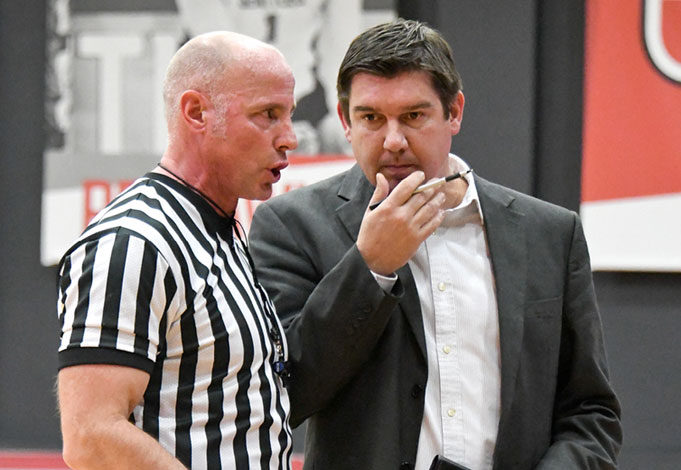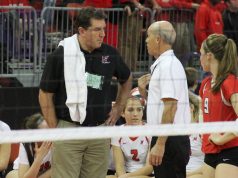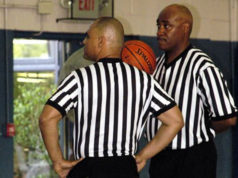No two ways about it, the nature of competitive sports is one of conflict. Conflict between two opponents sets the stage for points, goals, baskets or runs scored. It creates an exciting atmosphere that fills seats in our stadiums and bleachers in our gymnasiums. How nice would it be if conflict could be limited to the teams on the field or court? Of course, conflict exists elsewhere in sporting events and not in places that are so welcome.
Disagreement between officials and coaches is inevitable and may manifest itself in any number of ways: incorrect calls, misinterpretation of rules, inconsistent application of penalties, coaches whose self-image leads them to think they’re going to be interviewed by ESPN after the game, or sports officials who proclaim unquestioned sovereignty over the game. Those dynamics can create mistrust, fuel anger and negatively impact an official’s ability to call the game.
Conversely, healthy conflict among non-players can have quite the opposite bearing on the contest. When handled properly, healthy encounters can spur both sides to improved performance and innovative thought. It can bond parties, creating a connection that builds the capacity and integrity of the game. In order to move those pesky diatribes in the right direction, consider the following:
Remember that words matter
Using hostile language or words that are pretentious is simply asking for trouble. Choose your words and phrasing carefully so as not to put an edgy coach on the defensive. “What’s the problem, Coach?” could easily be replaced by the much less threatening, “How can I help you, Coach?”
Delivery matters, too
Even the most carefully selected turn of phrase can elicit an unwanted response if it’s delivered with dripping sarcasm. Officials are often as passionate as the players and coaches. Take a deep breath and try to keep the tone friendly and encouraging, not demeaning and impatient.
But before you speak, shut up and listen
Poor listeners are masters of creating their response while the other person is talking. The result is an ever-widening gap between the messenger and the message. Actively listen to what the coach has to say and let him or her know as much through verbal and non-verbal cues.
Respect the role of the coach
Coaches want to win. If they don’t, they get fired. Granted, officials can lose assignments for incorrect calls, but there are a lot more coaches out there who depend on a paycheck for their work than there are officials who make a living solely on the field or court.
Know when you don’t know
Rulebooks in any sport are full of complexity. No one knows all of the rules. Chances are there is at least one other official around. Seek counsel before stating something of which you’re not positive.
Don’t let it wait
Officials are challenged with maintaining the flow of the game in order to keep the contest fluid and fair. No one wants a team to gain a competitive advantage due to a prolonged discussion with the coach. Address the issue at hand professionally and quickly.
The scars from unresolved conflict can last an entire season. And nothing helps divert conflict better than a prepared official who knows the rules, maintains a professional appearance and respects others. Take the time to invest in yourself and follow the guidelines above. Conflict will always occur, and when it does, you’ll be ready to handle it in a positive and skilled manner.
What's Your Call? Leave a Comment:
Note: This article is archival in nature. Rules, interpretations, mechanics, philosophies and other information may or may not be correct for the current year.
This article is the copyright of ©Referee Enterprises, Inc., and may not be republished in whole or in part online, in print or in any capacity without expressed written permission from Referee. The article is made available for educational use by individuals.
















